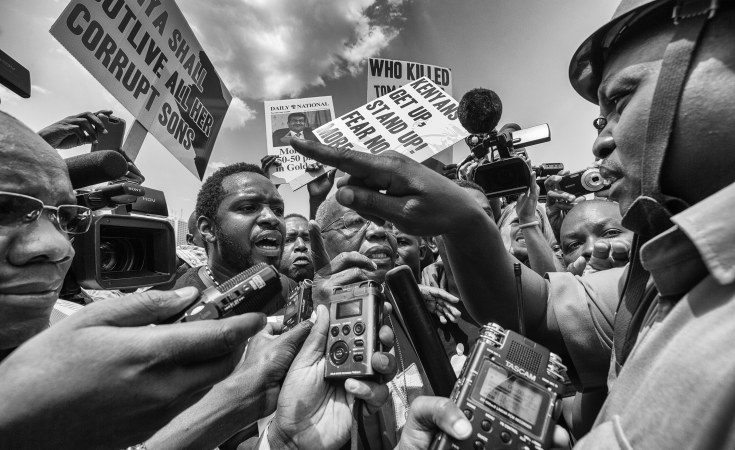The Media Alliance of Zimbabwe (MAZ) and the Zimbabwe Union of Journalists (ZUJ) have issued a clarion call to the government to ensure a free and independent media so citizens get credible information as Zimbabwe grapples with the El Nino induced drought.
Press Freedom Day is celebrated on May 3 and this year runs under the theme "A Press for the Planet: Journalism in the face of the Environment Crisis".
Zimbabwe is currently struggling with an El Nino-induced drought which has since been declared a national disaster.
Over 2.7 million people need food aid and the country has a grain deficit of 680 000 metric tonnes.
Citizens are largely relying on the media for credible reports on the drought and related environmental issues.
"The international theme for this year's press freedom day, A Press for the Planet: Journalism in the face of the environmental crisis, resonates with developments in Zimbabwe at a time that the country is experiencing an El Nino induced drought owing to this global environmental crisis.
"Citizens rely on the media for credible information in times of crisis and natural disasters.
"For the media to effectively inform and educate citizens on mitigation and adaptation measures, the environment must be conducive to allow free journalistic enterprise. The media should be able to report on specialized environmental beats, including climate change, agriculture and the gendered dynamics of the environmental crisis," said ZUJ Secretary General and MAZ chairperson Perfect Hlongwane.
This year's World Press Freedom Day is dedicated to the importance of journalism and freedom of expression in the context of the current global environmental crisis.
MAZ indicated the reforms and steps that should be taken by the government to restore confidence in the media.
"MAZ reiterates the following demands in respect of the media in Zimbabwe.
"Government should expeditiously and genuinely reform the country's media laws in a process that is transparent and inclusive.
"The media must be equipped to report on and respond to the global environmental crisis and the media should be partnered and supported in disseminating information around the El Nino-induced drought
"All state-controlled media should be transformed to public service media in line with the Constitution and democratic practice.
"The country's internet regulatory framework and digital security laws must be democratic and allow for citizens to enjoy rights to communication, access to information and free expression in a secure environment both on and offline.
"The government should address the sustainability challenges that the Zimbabwean media is currently experiencing and MAZ submits that this could be through the utilization of the Universal Services Fund (USF), the Broadcasting Fund and the Media Development Fund. There's also a need to review the multiple tax regime.
"Media organizations should implement gender-sensitive policies that ensure a safe working environment for male and female journalists and that will also ensure women are effectively represented and empowered through the media.
"The safety of journalists must be guaranteed and respected by both state and non-state actors.
"The media maintains the highest standards of professionalism and in promoting media accountability", added Hlongwane.


